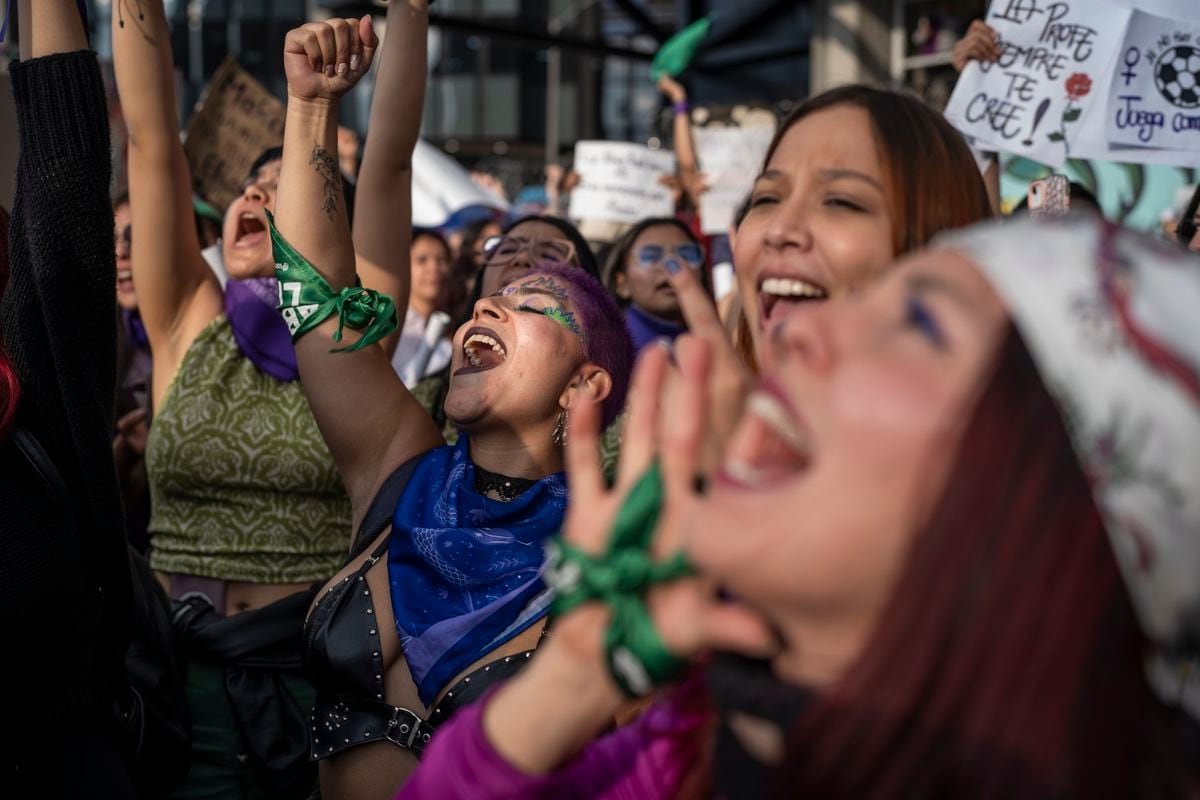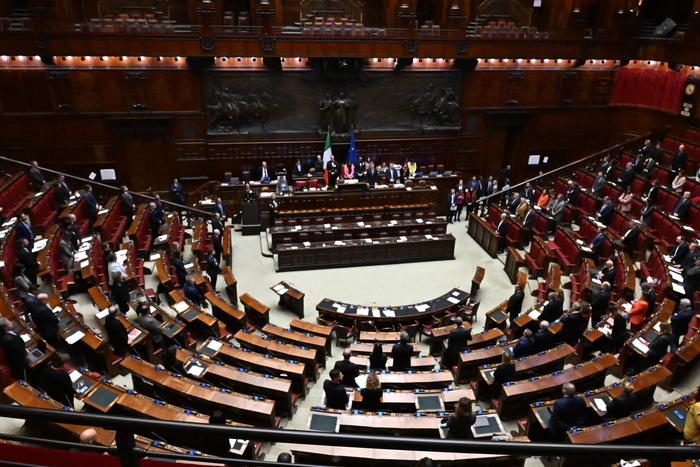Global society
all articles
The world is a long way from gender equality, according to a study by Equal Measures 2030 (EM 2030). Girls and women worldwide are structurally disadvantaged in their rights and well-being.
Women are paid less than men and are under-represented in power and decision-making positions. In some regions of the world, girls are not allowed to attend schools and are more hungry. Women are more often victims of sexual violence and often do unpaid work.
The situation is particularly dramatic, according to the report of EM 2030 in Chad. The Central African country lacks the foundations of a functioning rule of law and social and economic stability to enforce the rights of women and girls. Chad is one of the most underdeveloped countries in the world. The OECD lists it on its list of "fragile states."
State of gender justice
The organization EM 2030 wants to make gender equality measurable worldwide. More specifically, it examines the progress of countries in implementing the UN Sustainable Development Goals from a gender perspective.
Not a single country performs excellently
The UN has defined 17 areas in which it wants to improve the situation of man and the environment by 2030. Gender justice is one of those areas - alongside poverty, education, health and others. EM 2030 argues that even in these other areas there is inequality that women are more frequently affected by extreme poverty than men.
All these facets of inequality express EM 2030 in an index, a value between 0 and 100: the lower the value, the more women are penalized. From a value of 90, the status of gender justice is considered "excellent" - so far, not a single country reaches this level.
The staggering result of the study: 80 percent of women and girls worldwide live in countries that have a "bad" or "very bad" gender equality status in 2030.
The inequality manifests itself in different areas:
1. Paid work
According to calculations by the World Economic Forum, women only earn about 63 percent of men's wages on a global average. This difference is also due to the fact that women work more often in part-time and lower-paid occupations, and less often occupy leadership positions.
Women generally do less paid work and are less likely than working. Across the world, the employment rate of women between the ages of 25 and 54 is 63 percent - for men it is 94 percent.
In North Africa and parts of Asia, the gap is particularly large, where only around one third of women are considered gainfully employed. What these numbers do not show is that women are more likely to do unpaid work, take care of children and family, and are responsible for the household, education and care of the elderly. On average, women do two and a half times as much unpaid home and nursing work as men do.
2. Extreme poverty
Around 736 million people worldwide live in extreme poverty. According to the World Bank, women are more affected than men: for 100 boys, there are 105 girls who are extremely poor. At the age of 25 to 34, there are even 122 extremely poor women compared to 100 men.
In total, according to the World Bank, around five million more women than men live in extreme poverty, especially in South Asia and sub-Saharan Africa.
The "feminization of poverty" has different causes, especially financial dependency. According to the UN, 104 women are still not allowed to practice certain professions. In 18 countries men can in principle prohibit their wives from working. For example, women in Saudi Arabia generally have to seek the permission of a male guardian to do paid work.
In addition, women are often unofficially employed in large parts of Africa, the Middle East, South Asia and Latin America and have no social, health or pension insurance. Crisis situations, divorces or widowhood therefore often hit them harder than men.
Poverty is not only to be understood as an "income and consumption deficit", writes sociologist and gender researcher Christa Wichterich. Women are "poor in rights, opportunities, power, social security, time, nonviolence". And that means that they are also "poor in resources, education, health, employment and income," said Wichterich.
3. Political participation
In many places women have a harder time than men to participate in political decisions. This can be seen, for example, in the proportion of women in parliaments. There is still hardly a parliament in the world whose proportion of women reflects that of the population.
Rwanda, Cuba and Bolivia alone are the exception, according to the Interparliamentary Union (IPU). Here, not least thanks to quotas, there are proportionally even more women in parliament than living in the population.
However, the graph also shows that the proportion of women is low, especially in autocratic countries such as Turkey, Russia, Hungary and Kuwait. In Papua New Guinea, not even a single woman sat in parliament. There, the oppression of women is traditionally anchored, especially in rural areas. Women have fewer rights than men, less access to health care and education and often have to fully submit to the male head of the family.
But even Western, supposedly progressive states are sometimes far from having parity in parliament. At just under 24 percent, the United States hardly manages a quarter of the women's share, and Germany has not even occupied a third of the parliamentary seats with women. In contrast, Spain, Sweden and Finland are the European forerunners, with 47 per cent no longer far from parity.
Crisis regions particularly affected
The Equal Measures study also shows that the situation in countries with armed conflicts, natural or humanitarian disasters is particularly devastating. For such crises can aggravate gender differences: previously existing patterns of violence and exploitation intensify and many women and girls are exposed to additional violence, trafficking in human beings, unwanted pregnancies and exploitation.
EM 2030 used the most recent available measures for the index. In some cases, these were last collected prior to current conflicts, as in Yemen, for example, which achieves the fourth-worst gender equality score in the current study. The authors assume that gender equality has deteriorated further since the beginning of the war.
Other crisis-ridden countries, such as Syria, Afghanistan or the Central African Republic, could not be included in the index because they did not have enough data.
High-growth countries offer more gender justice
Denmark achieved the best score with a score of 89.3. In general, politically and financially stable states are ahead, which perform well especially in terms of poverty, hunger, water supply, education and peace. Among the first 20 states are mainly European countries as well as Canada, Australia and New Zealand. Basically, countries with higher economic performance perform better.
The correlation, according to EM 2030, is mainly due to the fact that countries with high economic potential can more easily create a significant basis, such as a functioning health system, education, infrastructure and water supply. Wealthier countries are therefore more likely to invest public money in equality programs for girls and women.
But there are exceptions. The United States, for example, has the third largest per capita GDP in the world ($ 62,641) and scores comparatively poorly (77.6, ranked 28th). Slovenia, on the other hand, achieved an unexpectedly high score of 86.5 in terms of economic output ($ 38,674 per capita), ranking sixth in the ranking.
However, according to the authors of the study, the countries in the first 20 ranks do not do enough for gender equality. Especially in the more affluent states there is still room for improvement regarding gender equality in the civil service, pay, the prevention of violence and the participation of women in science, business and politics. The conclusion of the report: "No country has reached the last few meters on the road to gender equality."
This article is part of the project Global Society, for which our reporters report from four continents. The project is long-term and supported by the Bill & Melinda Gates Foundation.
What is the project Global Society?
Under the title Global Society, reporters from Asia, Africa, Latin America and Europe will be reporting on injustices in a globalized world, socio-political challenges and sustainable development. The reportages, analyzes, photo galleries, videos and podcasts appear in the Politics Department of SPIEGEL. The project is long-term and will be supported over three years by the Bill & Melinda Gates Foundation (BMGF).
Are the journalistic contents independent of the foundation?
Yes. The editorial content is created without the influence of the Gates Foundation.
Do other media have similar projects?
Yes. Major European media such as "The Guardian" and "El País" have created similar sections on their news pages with "Global Development" or "Planeta Futuro" with the support of the Gates Foundation.
Was there already similar projects at SPIEGEL ONLINE?
SPIEGEL ONLINE has already implemented two projects in recent years with the European Journalism Center (EJC) and the support of the Bill & Melinda Gates Foundation: The "Expedition The Day After tomorrow" on Global Sustainability Goals and the journalistic refugee project "The New Arrivals" Several award-winning multimedia reports on the topics of migration and escape have emerged.
Where can I find all the publications on the Global Society?
The pieces can be found at SPIEGEL ONLINE on the topic page Global Society.


/cloudfront-eu-central-1.images.arcpublishing.com/prisa/Q6UJ4IEP6ZGLZLS3MSHF7LNYOU.jpg)



/cloudfront-eu-central-1.images.arcpublishing.com/prisa/NYBERFPPHVEJVER4FIRIEAGGX4.jpg)

/cloudfront-eu-central-1.images.arcpublishing.com/prisa/EMYXC3EVHNEG3OJHGIQCB2IVYA.jpg)


/cloudfront-eu-central-1.images.arcpublishing.com/prisa/KMEYMJKESBAZBE4MRBAM4TGHIQ.jpg)


